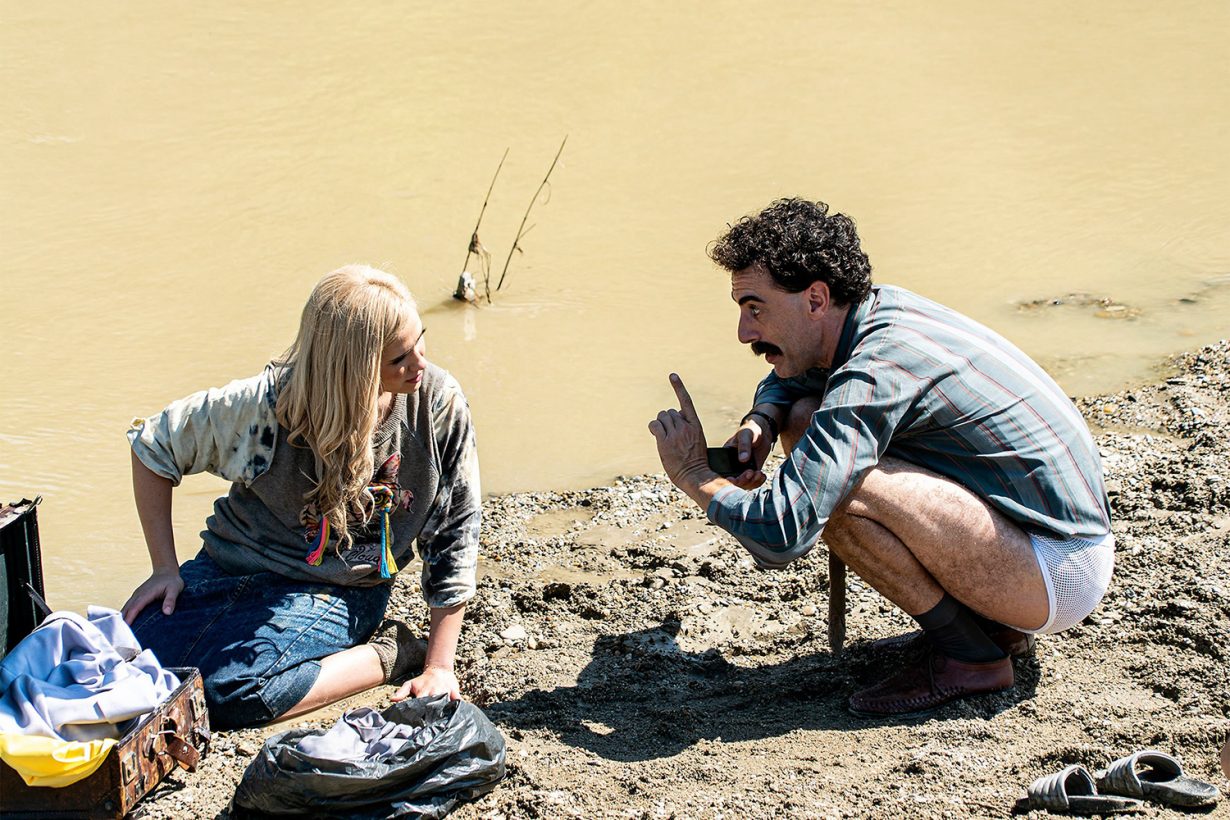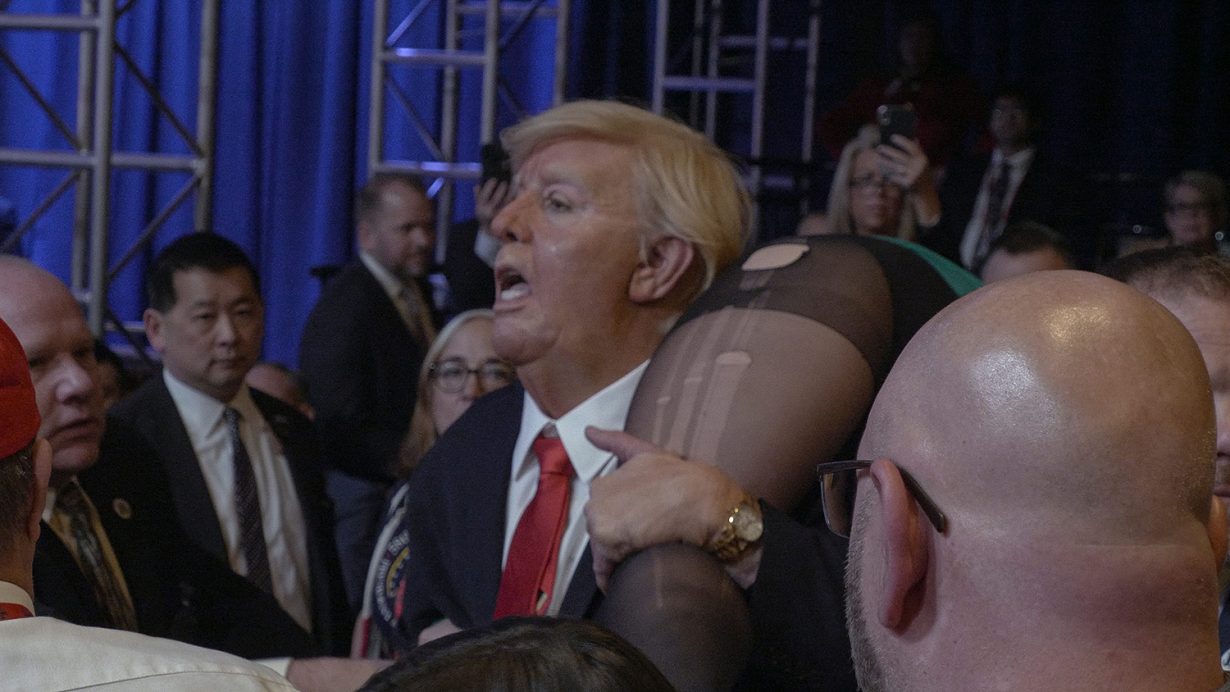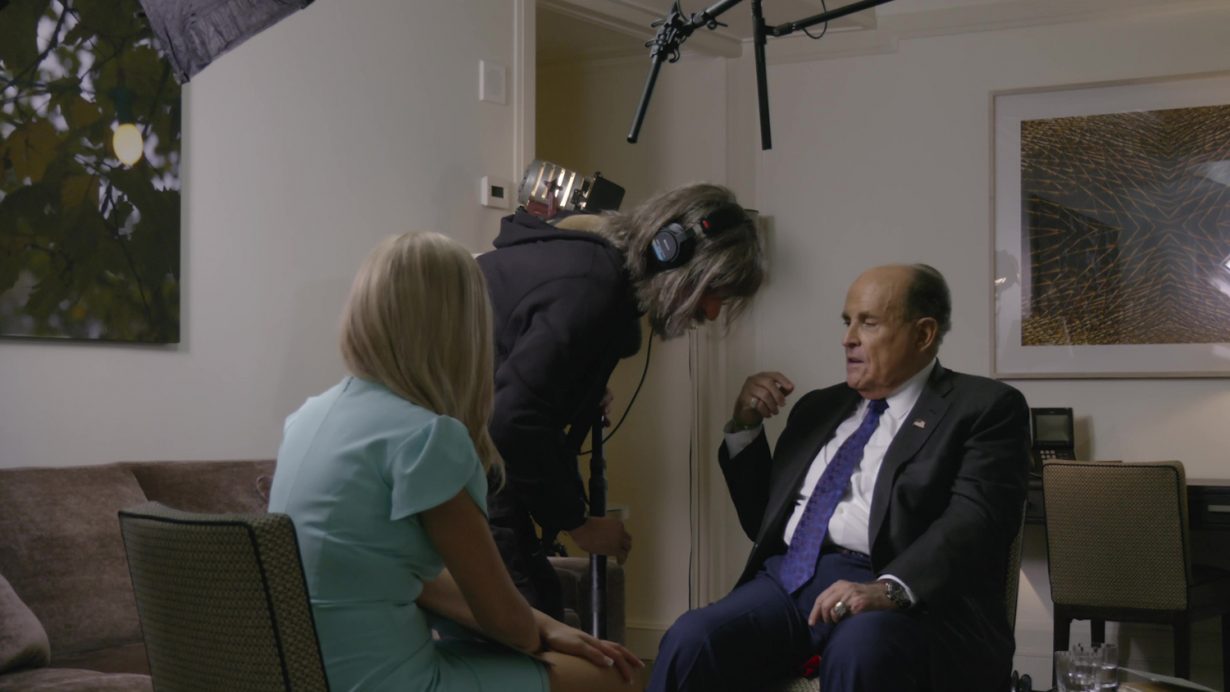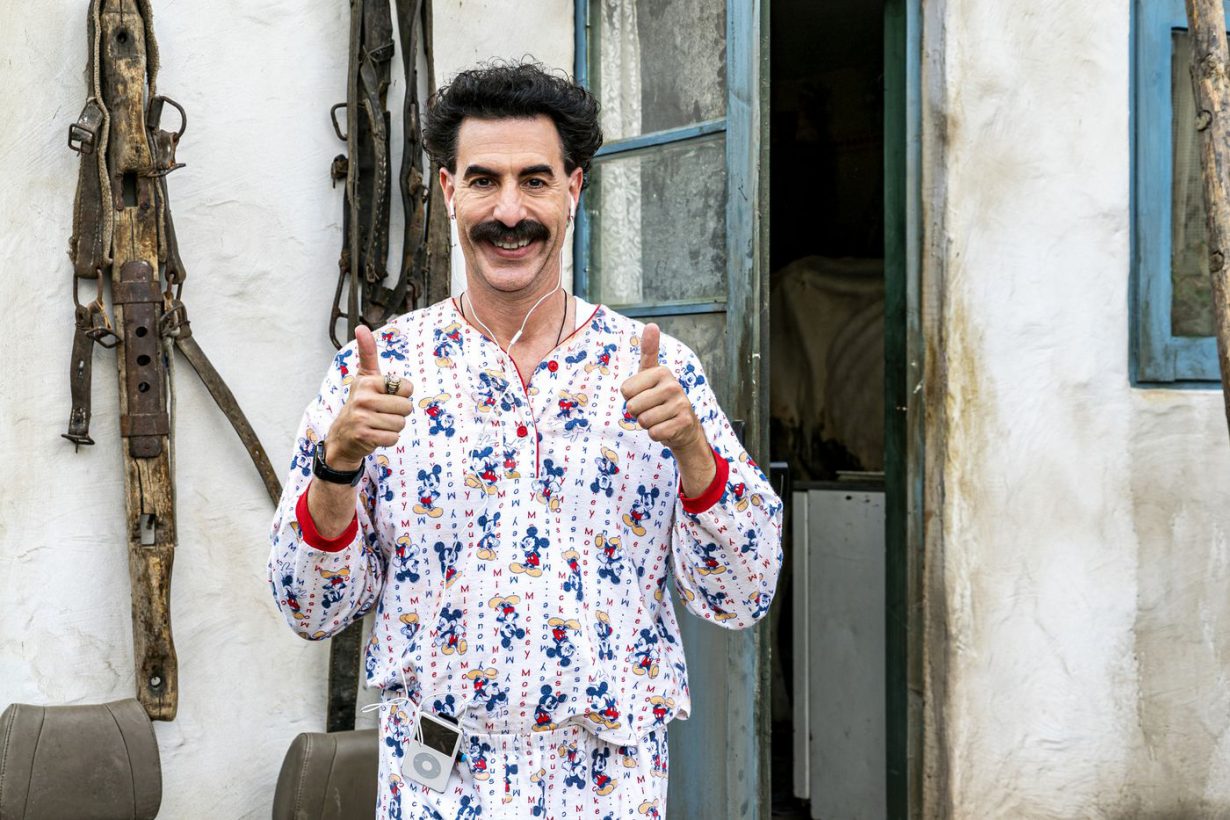In Borat Subsequent Moviefilm, Sacha Baron Cohen’s grotesque Kazakh journalist returns to an America that no longer hides the depths of its racism
Jewish folklore tells of the story of Judah Loew ben Bezalel, the great rabbi of Prague, who at some point during the sixteenth century is said to have created a golem, a sort of automaton, out of clay from the banks of the Vltava River. The mighty golem protected the Jews of Prague from pogroms and the threat of expulsion: but then one day, the rabbi forgot to deactivate it ahead of the Sabbath, and his creation went on a murder spree. Mankind was not careful with its creation – as a result it ended up performing the exact opposite function to that for which it was created. The golem was deactivated permanently, before being hidden in the attic of the Old New Synagogue. One day it might be restored to life, if the situation is ever urgent enough to justify it.
Perhaps this story can help illustrate the relationship between Sacha Baron Cohen and his own most enduring creation. When the comedian’s fictitious Kazakh journalist Borat first rose to prominence as a side character on Da Ali G Show (2000–2004), he seemed a thing of brilliance: a lewd, grotesque clown, whose strange combination of naked prejudice, naive vulnerability, and creepy sexuality seemed able to disarm almost anyone he encountered, exposing just how casually and uncritically sexist, racist and, in particular, anti-Semitic attitudes lurked just under the surface of polite, liberal society. But already, by the time we reached peak Borat, with the release of Borat: Cultural Learnings of America for Make Benefit Glorious Nation of Kazakhstan in 2006, the basic contradictions of this creation were obvious.

Here was a character who – for all the purported anti-racist impetus behind Baron Cohen’s performances – ended up appealing on a mass scale to the public whose racist attitudes he exposed by, well… saying and doing racist things. Here was a film that depicted a festival called the ‘Running of the Jew’ in which a man in a ‘Jew’ costume lays a ‘Jew egg’. That portrayed Borat’s native Kazakhstan as a nation of clueless, patriarchal morons among whom it is normal to wash in water someone else is currently pissing in; who keep disabled people in cages and habitually fuck their own sisters. And the most famous moment of which involved Borat wrestling naked in a hotel with a big fat guy. One can feel better for laughing by bearing in mind Baron Cohen’s stated intent: but let’s not pretend there isn’t more than one sort of audience for this. Borat’s creator has always been a panderer as well as a provocateur.
So, what has compelled Baron Cohen, in the year 2020, to bring down his grey suit and thick moustache from out of the attic; to travel across America saying outrageous things in an Eastern European accent once more? (I mean: leaving aside the presumably very tempting financial gains, and also the fact that nothing he’s done in the past decade has been funny). Unfortunately, on the evidence of Borat Subsequent Moviefilm (2020), I’m not sure he really knows the answer to that himself.

On a superficial level, one might think: well, back in the day, Borat exposed a lot of implicit racist (and other prejudicial) attitudes amongst the American public. Now, these attitudes are a lot more open and explicit – not least, at the highest levels of government. Surely it’s Borat’s time to shine! Borat, plus Trump, during a pandemic… you can see the cogs turning in the producer’s mind. (The two even have history: Borat was seen defecating outside Trump Tower in the original movie).
But then… that’s just it, isn’t it? Borat worked as a character in the context of a society that was still able to pretend it wasn’t incredibly racist – if prejudicial attitudes are able to be voiced, constantly and openly, in public, then we don’t really need an Eastern European stereotype to expose them. And of course, Baron Cohen struggles with this anyway because he is already incredibly famous: in the original movie, he had to focus on pranking unsuspected members of the public, because the celebrities he used to be able to access were already wary of being the butt of the joke; in this one, he has to go around in a fat suit because otherwise he gets heckled in the street. That said, the film’s recognition of Borat’s celebrity does lead to perhaps its funniest moment: when Borat goes into a costume shop to source a disguise, and discovers a ‘Stupid Foreign Reporter’ Halloween costume – an ersatz version of himself.

Initially, I thought, perhaps the film was going to attempt a subtler, deeper critique. Essentially, the plot (expressed largely through the underwhelming scripted segments that the film, unfortunately, has been forced to over-rely on – Baron Cohen has never really been able to do scripted comedy) hinges on Borat trafficking his fifteen-year-old daughter Tutar (played by the excellent Maria Bakalova) as a bride for Mike Pence. This has the basis for a powerful satire, in a political context in which elite child sex-trafficking is at the heart not only of the ongoing scandal surrounding the paedophile financier (and sometime Trump BFF) Jeffrey Epstein, but also (not unrelatedly) the QAnon conspiracy theory. Borat even has a son named Jeffreyepstein, and spends the lockdown months crashing with some Trump supporters who think the Clintons like to drink human blood.
But Borat Subsequent Moviefilm struggles to shine any new light on the infamies it documents. The plot culminates with Borat, having failed to gift his daughter to Pence, attempting to give her to Rudy Giuliani instead, entrapping ‘America’s Mayor’ in a compromising position that has already become infamous. It’s a righteous humiliation, and the scene is, to its credit, very funny – but in context, it needed to be more than that. This is what everything is supposed to have been leading up to, how all the preceding crudity and offensiveness is justified – but all Baron Cohen and Bakalova really achieve is making Giuliani – a man who everyone already knows is a shithead, and who both has and will face no real consequences for a long career spent being a shithead – look like a shithead. At one point we even see the film performatively downgrading its own expectations of itself, as Borat and Tutar trawl through a rolodex of alternative Trump hangers-on they might target, concluding that each would be unrealistic until eventually they settle on the gullible Giuliani.

Likewise, it is chilling when Baron Cohen is able to get service staff to easily and casually discuss how many gypsies a gas grill could kill, or write ‘Jews Will Not Replace Us’ on a cake. It is very funny to see him walk into the annual Conservative Political Action Conference, ‘fitting in’ by dressing as a member of the Ku Klux Klan. But one wants to see Baron Cohen try a more detailed sort of inquiry. Are these actually things the staff (for instance) are OK with, one wants to know, or are they just terrified that if they start a fight with a customer over it, they’ll lose their already precarious jobs?
Baron Cohen as Borat is perfectly able to do work ‘raising awareness’ of prejudice – but this is a world in which we are constantly assaulted by a crippling, overwhelming level of awareness. As an audience, we need more: but Baron Cohen seems unable to provide it. The film’s release has been very deliberately timed to coincide with the election, and it ends with the very specific injunction to ‘Vote!’ Ah, one thinks, the old Democratic magic: as if simply participating in civic institutions is the One Neat Trick we all need, to reverse the trajectory of the crumbling empire, ridden with hate and injustice and conspiratorialism, that we have just seen Borat stumble through.
And in the end, that’s it. For all that his most enduring character is intended to test and transgress the boundaries of polite, establishment liberalism, this is all Sacha Baron Cohen in 2020 seems to be: another polite, establishment liberal, not quite equal to the scale of the challenges our world faces.
